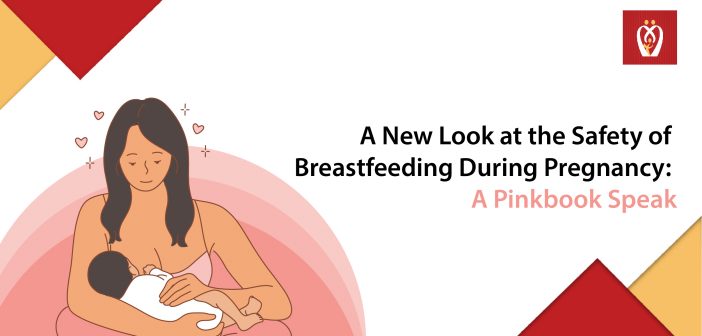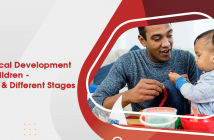Introduction
When you find out you’re pregnant again, just as you’ve gotten the hang of being a new parent, your maternal balancing act becomes a little more difficult. But, if you’re worried that you’ll have to wean your child sooner than you planned since another baby is on the way, don’t fret. Breastfeeding during pregnancy and tandem nursing (nursing both your new baby and your toddler) are both safe.
Tandem breastfeeding can provide some lovely perks, including extra quiet time with your toddler and assisting them in bonding with their new sibling. Nursing when pregnant and nursing two children at the same time, on the other hand, maybe considerably more physically taxing than breastfeeding a single baby, so it’s vital to take care of yourself and set limits with your toddler as required. Here’s everything you need to know about both nursing scenarios, as well as some clever ways for making them work.

Breastfeeding during Pregnancy
Breastfeeding and pregnancy are typically mutually exclusive: You may continue nursing your infant while expecting another if you feel up to it. However, because nursing promotes the release of oxytocin (the hormone responsible for contractions), you may have some stronger-than-usual Braxton Hicks contractions. They are not an issue in a low-risk pregnancy.
In reality, oxytocin appears to have little effect on the uterus until your body is ready to give birth (typically about 38 weeks). However, as your pregnancy continues, discuss your decision to continue breastfeeding with your GP and midwife ; if you have a high-risk pregnancy or are at a high risk of premature labour, your doctor may advise you to wean at least temporarily.
Are you worried that the pregnancy hormones circulating in your body may end up in your milk? Fortunately, your breast milk is just as safe now that you’re pregnant, and pregnancy hormones don’t easily transfer into breast milk, according to doctors.
Mood swings during pregnancy
During pregnancy, some moms have painful nipples. Paying close attention to your child’s posture might be beneficial. Childbirth programmes might teach you breathing methods to help you cope with your heightened sensitivity. If you get agitated as your child breastfeeds, the breathing methods may help. If your child is of sufficient age, you might breastfeed them more softly or for shorter lengths of time.
This will assist with your sensitive nipples as well as your restlessness. Extra sleep is common during pregnancy. Breastfeeding during pregnancy may allow you to get more sleep if you nurse your child while lying down.
How does breastfeeding during pregnancy affect the child?
There is no data that nursing during pregnancy will harm your current pregnancy or interfere with your new baby’s growth and development. You can still make breast milk for the kid you’re feeding while giving all the nutrition the baby you’re carrying requires. Here are some pointers to remember.
- Your body requires a lot of energy to produce breast milk, nourish your developing baby, and keep you healthy and strong. So drink lots of fluids, eat a well-balanced meal with extra healthy calories, and try to get some extra rest to maintain your power and prevent your body from getting nutrition depleted.
- If you have a medical condition such as anaemia or diabetes or follow a vegetarian or vegan diet, see your GP, midwife , a dietician, or a nutritionist to ensure you are receiving enough calories and nutrients.
- See your doctor for prenatal check-ups regularly to ensure that your pregnancy usually is going and that you are gaining adequate weight.
Catering to your older child while breastfeeding during pregnancy
Your breastfeeding will continue to give your first kid the nutrition they require. However, as your pregnancy develops, you are likely to make less milk. Also, when you begin to make colostrum, the composition of your milk may alter, and it may taste different. Because of these changes, your older kid may decide to wean themselves at any time during your pregnancy. This is common around the 5th month. As colostrum is a natural laxative, your older child’s poop may be more liquid than usual.
This is not a cause for concern. If your older kid is less than a year old when you become pregnant, keep a close eye on them to gain adequate weight when your milk changes. If they are still dependent on breastfeeding for sustenance, you may need to introduce additional meals. Seek guidance from your maternal child health nurse.
Breastfeeding during pregnancy NHS guide
Nurturey PinkBook’s NHS Library delivers algorithmically selected material straight from the NHS, providing our users with reliable and informed parenting and pregnancy advice. We offer the entire NHS pregnancy and baby guide ready to be skimmed through, encouraging and supporting your pregnancy and parenting journey from conception through child health. Vaccinations, breastfeeding, dental health, and milestones are just a few of the many common yet vital subjects covered in the NHS library.
We provide relevant material from the NHS library at the appropriate time to assist you with your parenting and pregnancy stage and circumstance. In addition, Nurturey, the smartest digital upgrade to the NHS paper red book, provides you with access to online GP services such as GP appointments, Prescriptions, Health Records, NHS Articles and Videos, and much more!
Conclusion
When a woman learns she is pregnant with her second child, she often begins to wean. However, if you are not ready and your doctor does not believe there is a medical need to wean, you are not required to do so. Breastfeeding may generally be continued safely throughout a new pregnancy. You can even nurse your older kid in addition to your infant when she comes. It’s known as tandem nursing. However, it’s easy to get weary and overwhelmed.
Weaning during pregnancy may be simpler owing to changes in the flavour and quantity of breast milk, it is up to you to decide if you’d like to discontinue nursing – which is completely fine. You should do what you believe is best for you and your family, and you should not feel bad about it.







